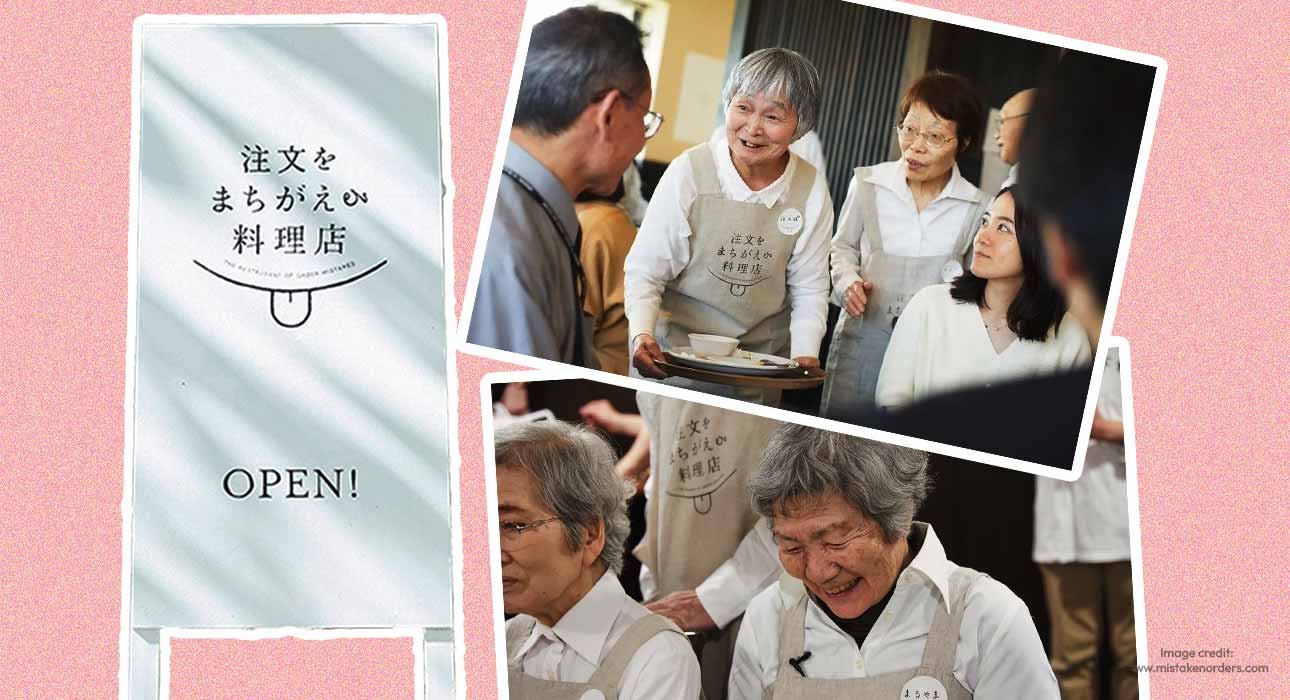Dementia is far more than simple memory loss; it’s a broad term for various cognitive impairments that significantly affect daily life, impacting memory, reasoning, and communication. Globally, about 35 million people live with dementia, encompassing conditions like Alzheimer’s and vascular dementia. A major hurdle for those with dementia is society’s lack of understanding (Nair, 2023). This usually results in a severe feeling of loss—of memory, identity, and autonomy—and often in social isolation through the communication difficulties.
Read More: Dementia Can Be Detected by Middle-Aged Brain Changes: Study
Misconceptions and Stigma Surrounding Dementia
Misconceptions concerning dementia, for example, that people are completely forgetful or non-responsive, create stigma and downplay their actual potential. Many people with dementia can, however, participate completely in activities of daily living and social interactions with the appropriate support (Japan, Go, 2022). Programs such as “The Restaurant of Mistaken Orders” utilise individuals with dementia, actively defying these stereotypes and demonstrating their capacity for connection and contribution. Fully comprehending dementia requires stepping beyond a strictly medical consideration to the point of seeing it as a basic aspect of the human experience that merits our sympathy and inclusive involvement.
Psychological and Social Significance of the Restaurant
1. A Radical Shift in Perception
“The Restaurant of Mistaken Orders” is an award-winning program that radically transforms the stigma attached to dementia. It accomplishes this by developing a setting that openly accepts and celebrates cognitive impairments, totally changing the conversation surrounding the conditions. The genius idea grew out of a basic premise: individuals suffering from dementia can engage significantly in society (Japan, Go, 2022). Guests are invited to look beyond blunders and instead revel in the lovely randomness of human interaction. This creates empathy among diners who would otherwise be oblivious to their own prejudices.
2. Building Empathy through Dementia-Friendly Interaction and Initiatives
Most importantly, the restaurant actively encourages direct interaction with people with dementia, de facto dismantling barriers and fostering relationships based on comprehension, rather than fear. Developing an inclusive environment promotes respect and support for one another, transforming what could be perceived as limitations into situations to share pleasure and friendship (Hung et al., 2020). This facility also functions to develop a larger culture of inclusivity by working on the strong premise that all people have something to offer despite cognitive difficulties.
This is in total harmony with community initiatives to develop dementia-friendly environments (Hung et al., 2021). By experiencing this innovative dining experience, individuals are provided with a true understanding of how to interact positively with individuals with dementia, opening the doors towards a more empathetic and understanding society that respects every individual.
The Role of Human Error in Everyday Life
Human mistake is an undeniable component of everyday life, making us question our understanding and interactions more often than not. “The Restaurant of Mistaken Orders” is a powerful demonstration of this, building a setting in which errors are not simply acceptable, they’re appreciated. Consider the following: about 37% of orders are served inaccurately. You’d expect bedlam, correct? Instead, the mood encourages dinner guests to smile instead of scowling at their food mistakes. This strategy pathologises mistakes within public spaces, teaching both employees and visitors to see blunders with compassion and understanding.
1. Acceptance and Compassion in Dining: Creating Human Connections Beyond Food
The patently good-natured reactions from customers, who delight in receiving misorders, are nothing short of astounding (Nair, 2023). By simply accepting the inherent human inclination to make mistakes—particularly for people with dementia—this restaurant makes things easier for all concerned. Employees do not feel nearly as stressed about being perfect, enjoying a more casual environment in which they can succeed without fear of judgment. Visitors are also well-served, knowing that eating can be a carefree activity without the constant quest for perfection.
As NPR.org (2023) points out, the restaurant is more than about serving meals; it serves to create human connections based on shared experiences of vulnerability and acceptance. This new strategy promotes friendliness and tolerance among staff and patrons alike, building stronger connections that extend much further than standard restaurant transactions. By embracing human mistakes as a vital aspect of the process, “The Restaurant of Mistaken Orders” not only defies social perceptions of dementia but also highlights the integral position of empathy in everyday interactions.
Connection through Vulnerability: Lessons Learned
1. Redefining Identity and Dignity
In “The Restaurant of Mistaken Orders,” vulnerability is an incredibly powerful vehicle for examining identity and dignity in service positions. In this extraordinary venue, people with dementia have purposeful employment that overtly assaults prevalent social stereotypes that frequently dismiss their capabilities. The restaurant not only provides an arena for interaction but also heightens the identities of the employees so that they can reclaim their dignity as vital contributors to society. Servers tend to voice feelings of competence and self-confidence (Japan, Go, 2022), wonderfully showing that individuals with dementia are defined by more than their diagnosis. They have distinct skills and backgrounds that truly complement the dining experience as a whole for all.
Read More: 10 Daily Habits to Build Self-confidence
2. Redefining Competence and Success
It’s important to refocus on what competence in this situation really is. Competence in most fields is brought about by precision, accuracy, and ideally, meeting the customers’ needs. However, at “The Restaurant of Mistaken Orders,” where 37% of orders are served wrongly, nearly every customer departs content (NPR.org, 2023). Take that for a moment. This fact flips the whole spotlight completely from perfection to genuine human connection. Guests do not visit solely for sustenance but to have meaningful interactions with the servers, and the atmosphere is one where compassion and understanding must be more important than stigma.
3. Transforming Success into Social Integration
This system really demonstrates how reframing success can produce social integration and, at the same time, increase awareness regarding dementia. By viewing errors as moments of connection—rather than disappointments—guests and servers alike undergo personal development through mutual vulnerability. This inspires society to adopt wider conceptions of competence in service professions, ultimately transforming the way that we understand people living with dementia.
Read More: Human Psychology Theories on Personality Development
Conclusion: Wider Implications for Society and Care Practices
1. Fighting Stigma and Building Inclusion: Empowering People with Dementia
“The Restaurant of Mistaken Orders” is more than just a novelty restaurant. It’s an excellent model of how society can interact with dementia more effectively, encouraging discussions that fight back against stigma and build bridges of understanding. This campaign helps communities cultivate supportive environments where people with dementia feel included, so contributions are prioritised over diagnosis. It’s a positive and much-needed change.
Such social programs serve to underscore the value of authentic relationships between persons with dementia and society at large. They empower persons with cognitive impairment and make them feel more included. Empowerment asserts a fundamental fact: individuals with cognitive challenges are agents, not mere passive recipients of support. They are in control.
2. Global Alignment with Age-Friendly Movements: Policy and Healthcare Implications
Moreover, the philosophy of the restaurant is in complete harmony with international campaigns promoting age-friendly and dementia-friendly communities. It is all about collaboration among all stakeholders to dismantle obstacles and design settings that truly honour dignity. Studies repeatedly stress that raising awareness in all sectors is of utmost importance to combat stigma associated with dementia (Hung et al., 2020). We want everybody on board.
This pressure to be inclusive affects policy-making and healthcare policy. It itself virtually guarantees that learning from such projects can translate into integrative interventions that meet medical and psychosocial needs. The project is not about a restaurant; it’s a challenge to society to welcome its vulnerable populations, to make settings where all people can really flourish despite cognitive barriers. It’s a vision for the future.
FAQs
1. What is The Restaurant of Mistaken Orders?
It’s a unique dining experience in Japan where servers living with dementia may bring you the “wrong” meal—and that’s the point. The restaurant uses mistakes to challenge stereotypes, foster empathy, and showcase the humanity and abilities of those with cognitive decline.
2. Why does the restaurant employ people with dementia?
The restaurant aims to break societal stigma by proving that individuals with dementia can still contribute meaningfully. It creates a supportive environment where staff are valued for their presence and effort, not perfection, encouraging the world to rethink outdated assumptions about cognitive conditions.
3. How do customers respond to incorrect orders?
Most diners embrace the unpredictability with curiosity, patience, and laughter. Mistaken orders become ice-breakers, transforming small errors into shared experiences that foster compassion and deeper appreciation for the challenges faced by those with dementia in daily life.
4. What message does the restaurant send about human error?
It redefines mistakes as moments of connection rather than failure. Normalising human error, especially from people with dementia, it creates an atmosphere of acceptance. The restaurant turns imperfection into joy and demonstrates that kindness can replace criticism in everyday interactions.
5. How does this change perceptions of dementia?
The experience encourages society to see people with dementia as capable, social, and deserving of dignity. It shifts the narrative from incapacity to inclusion—reminding us that with understanding and patience, those with cognitive decline can continue to thrive and be part of community life.
References +
The servers all have dementia at The Restaurant of Mistaken Orders in Tokyo. (2023). https://www.npr.org/2023/08/23/1195387866/the-servers-all-have-dementia-at-the-restaurant-of-mistaken-orders-in-tokyo
Nisha Nair. (2023). The Restaurant of Mistaken Orders. https://www.linkedin.com/pulse/restaurant-mistaken-orders-nisha-nair
Lillian Hung, Sharon Leitch, Ryan Hung, Alison Phinney. (2020). Creating dementia-friendly and inclusive communities for social inclusion: a scoping review protocol. https://bmjopen.bmj.com/content/10/6/e035028
Lillian Hung, Allison Hudson, Mario Gregorio, Lynn Jackson, Jim Mann, Neil Horne. (2021). Creating Dementia-Friendly Communities for Social Inclusion: A Scoping Review. https://pmc.ncbi.nlm.nih.gov/articles/PMC8127744/
Restaurant of Mistaken Orders Brings Smiles. (2022). https://www.japan.go.jp/tomodachi/2019/winter2019/restaurant_of_mistaken_orders.html













Leave feedback about this